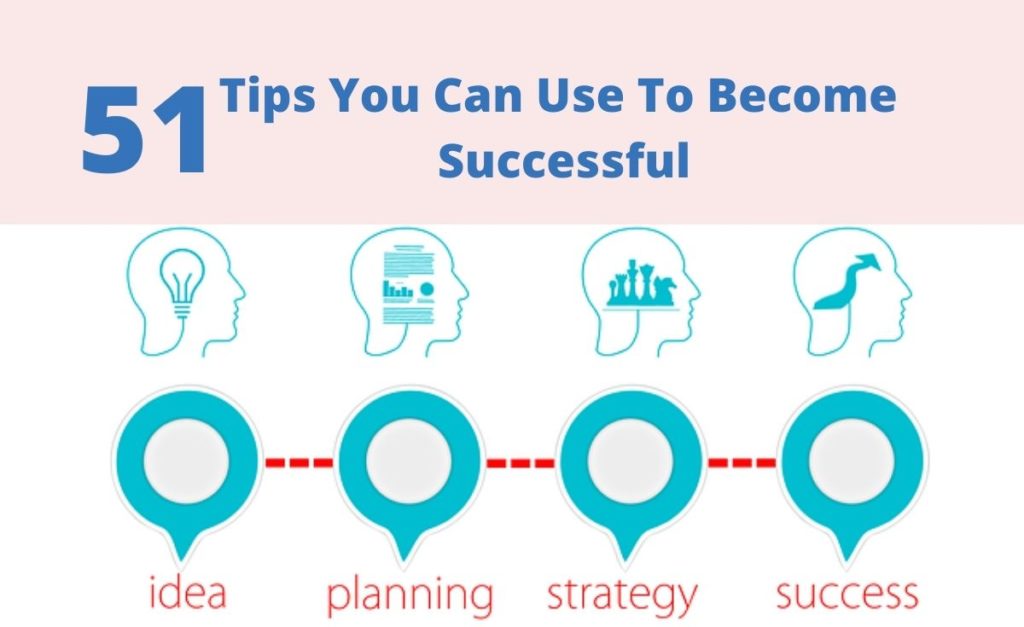If you hate your job so much that you are constantly stressed out and lose sleep over it, and it does not align with your health requirements and career goals, it is time to do something about it. The question is, what do you do when you hate your job and feel trapped in it?
Don’t quit yet if you are considering finding a better job. Quitting a job because you hate it might not be the solution if the underlying causes of your lack of job satisfaction have nothing to do with it. First, you must evaluate why you are unhappy with the job and take the necessary steps to address the issue, including talking to a mentor, learning new skills, changing roles or departments, improving your performance, or quitting if nothing else seems to work.
Here is a list of things to do when you hate your job and always feel stressed and trapped.
1. Identify the problem
Being in a job you hate and feeling trapped in is one of the worst experiences you can have. Hating your job, however, can be a result of many things. Sometimes, the reason you hate your job has nothing to do with the job itself. This is because hating your job and feeling trapped in it can be due to internal or external factors.
- Internal factors influence how you feel about your job. If you feel unsatisfied with your career and feel depressed or trapped, it might be due to internal factors. These factors include your ability to utilize your skills, relationships with coworkers, sense of accomplishment, relationship with your manager, career growth, job autonomy, recognition, etc.
- External factors influence job dissatisfaction. These factors include industry trends, the company’s culture, leadership, value, and growth opportunities outside of your department.
You might also hate your job and feel trapped due to what is happening in your life. For example, if you are experiencing a divorce or other life-changing event, you might feel lost and unable to accomplish your job requirements. In this case, the job is not bad. What is happening in your life is causing job dissatisfaction and miserable feelings, even if nothing has changed about the role, coworkers, management, work-life balance, etc.
This is why understanding what you hate about your job is the first thing to do when you feel unhappy or trapped. Is it the workload, lack of growth opportunities, poor work environment, or something else? Identifying the root cause of the problem is the first step toward seeking a way out of your miserable career.
Related: 10 signs it is time to quit your job for a better life
2. Give it your best
Sometimes, feeling miserable at work or lacking satisfaction is due to poor performance. If you hate your job, it is possible that you are not contributing enough or have not utilized your skills to make a difference where you work. The value you create at the job is one of the leading factors influencing how you feel about the job.
For example, when you perform well, your coworkers see you as an essential value to the team and someone they can rely on to get the job done. As a result, you get respected more by your colleagues and managers. The company sees you as a valuable employee. High performance also creates more opportunities for growth, recognition, bonuses, and higher pay. If your performance meets expectations or you are below expectations, you might need to do a little bit more.
How do you know if you have performed excellently at your job?
Please read through the following questions and give yourself an honest rating from 1 to 10, with 10 being the highest. If you fall short on the items on the following list, you might need to start working on them. Excelling in these areas will help you create more value for the company, increase productivity, lower costs, improve the work environment, and increase quality. As a result, the company will start treating you differently, coworkers will respect you more, and, more importantly, you will feel great about yourself and the job.
- Are you constantly working when you are supposed to be working?
- Are you creating value in the company?
- Is there any chance you are holding back your skills and abilities simply because you hate the job and are trapped?
- Is there something you can do to increase the company’s value but have not done it yet?
- Do you spend most of your time gossiping and rushing your project at the last minute?
- Do you show up on time, get your project done on time, and give support to other team members?
- Are you a team player always willing to help anyone in your group succeed, including external shareholders?
- Do you constantly look for improvement projects to help improve productivity, improve quality, and lower costs?
- Do you have good manners and work well with everyone around you?
Try to make a difference and create value in the company before you assume the job is terrible. Give it your best, create more value, and boost your performance because these factors directly influence your job satisfaction, recognition, growth, and overall happiness at work.
If you have done all you can at work, still hate it, and feel trapped, it might be time to try a different strategy.
3. Talk to someone
If you feel unhappy and trapped in your job, contact the right personnel in your company for assistance. This could involve talking to your boss about your concerns, seeking additional training, or simply requesting a change of roles or responsibilities.
For example, if you are miserable while working on a project, you can ask your boss to remove you from it and put you where you feel comfortable.
This usually happens when you are working outside of your skillset zone. Most companies also have career coaches and mentors whom you can talk to when you have career concerns and feel trapped in your job. Always seek support and talk to the right person for guidance.
4. Know where you are headed before you quit.
Hating your job and feeling trapped is one thing. Quitting simply because you can leave a job you hate is another thing. While it is not a good idea to stay in a job you hate, it is also not a good idea to just quit without a plan. You still need to evaluate your options before you submit a resignation letter to your boss.
If you have done all you can to improve your job satisfaction but still nothing changed, it might be a perfect time to search for other job opportunities. For example, in the previous steps, I mentioned that knowing why you are unhappy with your job is critical to improving your conditions. This is true because it helps determine how to move forward and improve your conditions.
For example, if you hate your job and feel trapped due to a lack of growth opportunities, changing your role or getting a job that offers these opportunities might be a perfect option to address the issue. But, if you are not happy with your job because your performance sucks, you need to work on you because quitting won’t solve your problems. You will still be miserable at the next job if you don’t change yourself. Seek other job opportunities or secure another job before you quit.
If you have decided to quit as the only solution, prepare to avoid unemployment and financial hardships. Don’t fall for the idea of taking six months off unless you have a sizeable savings account or have passive income to cover your expenses.
5. Know what you are good at.
When someone tells me they hate their job, I ask them what they are good at. This might be a surprise, but you will be miserable if you work in a job that does not utilize your skills, experience, and certifications. You cannot like a job without being challenged enough to grow and create more value.
The same applies if you are doing a job outside your career goals and interests. You cannot provide value when figuring things out as you go and have no idea what you are doing. For example, if your background is in sales and you currently work as an IT specialist, you will be miserable in this role. That is why it is critical to understand your career goals, what you are good at, and whether your current role aligns with them. The key to job satisfaction is to work in an environment that allows you to use your current skills while learning new ones.
Understand your unique skills and qualities and how they align with your current role and career goals. This would help you negotiate better conditions at your current job and give you an edge in the job market.
6. Cultivate a positive mindset.
Do you hate your job because you feel negative about it? Maybe you are working in an environment where you are overqualified and under-compensated. Or do you feel miserable and hateful because you don’t see much value in your work?
Another common trait that causes people to hate their jobs is working on projects they hate or being asked to solve complex problems beyond their intellectual capacities. I know how it feels to work on a project for months without progress. Imagine working on a project for a whole week or month and saying you don’t have an update after that much work and resources. These situations happen daily to millions; don’t give up if you are one of them.
While it is easy to give in and unleash your negativity when things are tough, keeping a positive mindset is always the best way to look far beyond your challenges. A positive mindset is a unique weapon against complex problems and work challenges. Keep a positive attitude even when things are tough.
7. Network
Do you hate your job so much that you feel every day is a punishment? Are you having sleepless nights because you are worried about how tough things will be the next day? Do you see yourself at a place other than your current company or role? If you do, it is time to network because you will quit soon.
These feelings mean you won’t be in your current role or company long. So, you must start networking to find a job that fits your skills and qualifications and is less stressful. No one wants to be in a miserable work environment for decades. You deserve better, and if you are at a breaking point, you will more likely quit, get fired, or change departments. In this case, networking is essential to help you find better opportunities within or outside the company.
The best way to network is by attending conferences and seminars on your desired career focus. Another great option to network is to have a LinkedIn account. The account gives you access to dozens of companies and thousands of employees and managers within those companies.
8. Explore new opportunities
Like I said earlier, quitting or changing jobs might be your only choice if you don’t see yourself staying in your current role or company. I wouldn’t recommend staying in a job you hate so much that you feel trapped. Nobody should have such a feeling for a paycheck. Even if you hate your job but can’t quit for some reason, you might reconsider your health first before everything else.
An unfavorable work environment can lead to mental health issues and excessive stress. You don’t want to be stuck in your current role for long. It is time to seek new job opportunities or careers or start your own business.
Besides your current role, there are other things you can do and be happy at the same time. Inventory your skills, experience, qualifications, and career goals, and find a job that matches your needs. Never take a job because it pays more money. Take it because it has more significant meaning in your life, career development, mental health, and life goals.
9. Invest in yourself
Sometimes, prioritizing your development is the best solution when you hate your job and feel trapped. Every effort you make to improve yourself pays off in the long run. Focus on continuous education, learning a new skill, or investing in your health and well-being. These improvements can help you get a promotion or a better job elsewhere.
For example, if you are not doing a dream job due to not having specific skills and education requirements, learning these skills or getting that degree can make a difference in your life. Make a list of all the skills you need to have for your dream job. Then, learn each one of them.
The best way to know what skills you need for your dream job is to look it up on job boards such as Indeed, LinkedIn, Glassdoor, ZipRecruiter, CareerBuilder, and Monster. Then, read the qualification requirements, which include the education section, skills, and certifications.
10. Seek professional help
If your job is causing you severe stress and unhappiness, seeking professional help, such as a career coach or counselor, may be beneficial. They can provide strategies to cope with your situation and guide you towards making positive changes.









